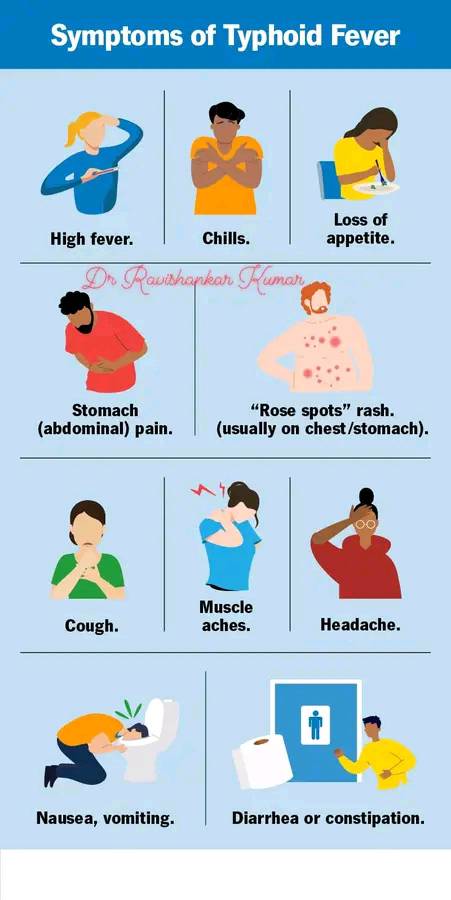South Africa
Gauteng health steps up typhoid fever awareness amid rising Tshwane cases─── ZENANDE MPAME 12:06 Wed, 05 Nov 2025

As health officials race to contain the spread of typhoid fever in the City of Tshwane, the Gauteng department of health is intensifying efforts to educate communities about prevention and early detection.
The department has urged residents to remain vigilant and seek immediate medical attention if symptoms arise, warning that the infection, although treatable, can become life-threatening if left untreated. The Tshwane district has seen an increase in typhoid fever cases, including in places where there were none the previous year.
No fewer than 48 cases have been reported in Hammanskraal, Bronkhorstspruit, and East of Pretoria since January, says the department of health.
Of the reported cases, Bronkhorstspruit accounts for 22, Hammanskraal for 17, with eight cases in Pretoria West and one in Pretoria East.
 Symptoms of typhoid fever. Photo: Facebook/Medical Laboratory Technician
Symptoms of typhoid fever. Photo: Facebook/Medical Laboratory Technician
Typhoid fever is a systemic illness caused by a bacterial infection with salmonella that is spread through contaminated food or water. Symptoms include a high fever, headache, fatigue, stomach pain, and either diarrhoea or constipation.
It is treated with antibiotics, but can be serious or even fatal if left untreated; it is preventable with proper hygiene and by consuming safe food and water. In South Africa, the disease is endemic, meaning it is constantly present and occurs at a low level of frequency, although the potential for outbreaks does exist, according to Mediclinic.
“In light of these cases, the public is urged to practice good hygiene by washing hands with soap and water before eating or preparing food,” said the Gauteng department of health. “After using the toilet or changing a baby’s nappy and before breastfeeding or bathing children.
“The infection is primarily transmitted through food or water contaminated with the bacteria, often through faeces or food prepared by a person who is infected with typhoid, as well as watering crops with contaminated water.
“Individuals experiencing symptoms such as fever, nausea, vomiting, diarrhoea, headache, constipation, abdominal pain, loss of appetite, and general body aches are urged to visit their nearest clinic or hospital for immediate medical attention.”
The ministry of water and sanitation commended the swift action taken by the CoT and the DWS, together with the National Institute for Communicable Diseases, in response to the incidents of typhoid cases reported in the Hammanskraal and Bronkhorstspruit area.
The ministry is concerned about the incidents of typhoid occurring in a community that has recently recovered from a cholera outbreak. Both cholera and typhoid can be spread through either consuming contaminated water or through poor food handling and hygiene.
• Have a news tip to share? Phone or whatsapp the OFM News Hotline: 066 487 1427.















